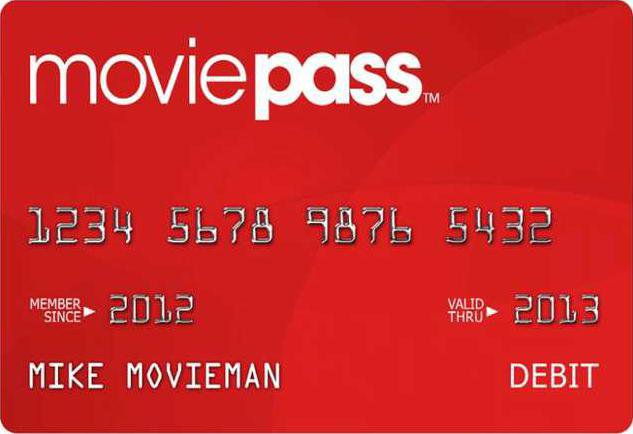Is MoviePass around for the long-term?
Thats the question writer David Sims of The Atlantic asks in a recent article, wondering if the subscription service has the staying power and audience to survive long-term.
MoviePass, which offers subscribers one movie ticket per day for $9.95 a month, made headlines earlier this week when it revealed it will no longer cover tickets at 10 different locations, most of which are in wealthy areas in New York City, including Empire 25 in New York City, the Universal City Walk, AMC Loews Boston Common and the AMC Century Plaza.
MoviePass doesnt offer tickets at high-priced theaters already.
Our No. 1 goal as a company is to provide an accessible price-point for people to enjoy films the way theyre meant to be seen: on the big screen, MoviePass CEO Mitch Lowe said in a statement emailed to the Deseret News.
Similarly, Ted Farnsworth, chairman and CEO of Helios and Matheson, which owns a majority stake in MoviePass, said the company isnt theater loyal, and that they will continue to seek out theaters that offer value prices for customers. AMC, he said, doesn't offer value tickets.
AMC has often questioned the longevity of MoviePass, saying that the company is a small-fringe player, showing that AMC isn't cooperating with MoviePass.
Farnsworth said in a statement to Deadline that the company will no longer tolerate AMCs lack of cooperation.
As weve grown our subscriber base, weve seen a dramatic increase in movie-theater attendance among our subscribers, which proves to us that MoviePass is working to revitalize a declining industry, Farnsworth said in a statement. Other theater companies have seen this attendance resurgence and have approached MoviePass to collaborate. Since the get-go, AMC has not been interested in collaborating with MoviePass a move that is not in the interest of our subscribers and AMC theatergoers.
According to The Atlantic, MoviePass is exhibiting a show of force and doubling down on its subscribers, who represent 62 percent of AMCs income, according to the company.
But theres still no guarantee MoviePass will be around for the long-term.
The $9.95 price point is so ludicrously low that it surely cannot be sustained forever, even if MoviePass starts getting a cut of ticket sales, according to The Atlantic.
But, as The Atlantic reported, people have stuck with the brand, which could be a troubling sign of things to come for theater chains like AMC. If enough subscribers stay around, MoviePass would disrupt the industry.
It seems the cinephiles are already on board, and casual viewers are coming in droves, too. If this trend keeps up, AMC and other chains are going to have to respond with more than a shrug, according to The Atlantic.
Thats the question writer David Sims of The Atlantic asks in a recent article, wondering if the subscription service has the staying power and audience to survive long-term.
MoviePass, which offers subscribers one movie ticket per day for $9.95 a month, made headlines earlier this week when it revealed it will no longer cover tickets at 10 different locations, most of which are in wealthy areas in New York City, including Empire 25 in New York City, the Universal City Walk, AMC Loews Boston Common and the AMC Century Plaza.
MoviePass doesnt offer tickets at high-priced theaters already.
Our No. 1 goal as a company is to provide an accessible price-point for people to enjoy films the way theyre meant to be seen: on the big screen, MoviePass CEO Mitch Lowe said in a statement emailed to the Deseret News.
Similarly, Ted Farnsworth, chairman and CEO of Helios and Matheson, which owns a majority stake in MoviePass, said the company isnt theater loyal, and that they will continue to seek out theaters that offer value prices for customers. AMC, he said, doesn't offer value tickets.
AMC has often questioned the longevity of MoviePass, saying that the company is a small-fringe player, showing that AMC isn't cooperating with MoviePass.
Farnsworth said in a statement to Deadline that the company will no longer tolerate AMCs lack of cooperation.
As weve grown our subscriber base, weve seen a dramatic increase in movie-theater attendance among our subscribers, which proves to us that MoviePass is working to revitalize a declining industry, Farnsworth said in a statement. Other theater companies have seen this attendance resurgence and have approached MoviePass to collaborate. Since the get-go, AMC has not been interested in collaborating with MoviePass a move that is not in the interest of our subscribers and AMC theatergoers.
According to The Atlantic, MoviePass is exhibiting a show of force and doubling down on its subscribers, who represent 62 percent of AMCs income, according to the company.
But theres still no guarantee MoviePass will be around for the long-term.
The $9.95 price point is so ludicrously low that it surely cannot be sustained forever, even if MoviePass starts getting a cut of ticket sales, according to The Atlantic.
But, as The Atlantic reported, people have stuck with the brand, which could be a troubling sign of things to come for theater chains like AMC. If enough subscribers stay around, MoviePass would disrupt the industry.
It seems the cinephiles are already on board, and casual viewers are coming in droves, too. If this trend keeps up, AMC and other chains are going to have to respond with more than a shrug, according to The Atlantic.








